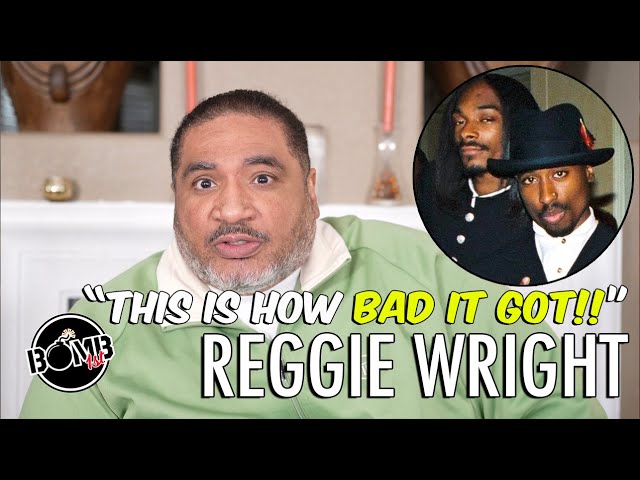Products You May Like
In a recent episode of the Bomb1st podcast, Reggie Wright discussed the complex dynamics and tensions between iconic figures in the hip-hop world, particularly regarding the infamous conflict surrounding the late Tupac Shakur and Snoop Dogg, as well as the involvement of Suge Knight. Wright provided insightful commentary on Suge Knight’s suspicions of Snoop Dogg’s potential involvement in Tupac’s death, reflecting a deeper narrative of loyalty, betrayal, and the violent undercurrents prevalent in the hip-hop community during that era.
Wright explained that the fallout between Tupac and Snoop was significant and occurred just days before Tupac’s fatal trip to Las Vegas. The animosity reportedly stemmed from several misunderstandings and issues regarding loyalty and representation within the rap industry. Wright made it clear that these disputes were rooted in the competitive nature of the industry, where alliances could shift rapidly, and trust was scarce. This tension reflects the broader issues of rivalry and highly publicized conflicts within the world of hip-hop during the 1990s.
Wright elaborated on Suge Knight’s suspicions, suggesting that Knight had reason to believe Snoop Dogg took an adversarial stance against Tupac. According to Wright, Knight’s feelings were influenced by both the public spat between the two artists and their contrasting careers—Snoop Dogg was experiencing a peak in his fame around the same time Pac’s life was tragically cut short. This context of rising tensions and fierce competition could lead someone in Knight’s position to misinterpret Snoop’s actions and motivations regarding Tupac.
Moreover, Wright emphasized that personal relationships within the hip-hop scene were often complicated by business interests and public personas. Suge Knight was very protective of Tupac, and any perceived betrayal from those close to him, especially someone like Snoop, could lead to significant animosity. Wright’s insights into the dynamics of this relationship during a pivotal time for both artists reveal how easily conflicts could spiral out of control in such a volatile environment.
Wright’s commentary also touched on the cultural significance of these relationships and how they were emblematic of broader themes of loyalty, respect, and betrayal that pervaded the hip-hop landscape. He noted that the pressures felt by artists, combined with the media scrutiny surrounding them, could lead to misunderstandings and conflicts that might otherwise have been avoided.
The discussion not only sheds light on the events leading up to Tupac’s assassination but also illustrates how quickly friendships can deteriorate under the weight of fame and expectation. It reminds us that the narrative of hip-hop is complex, filled with the intricacies of personal relationships intersecting with broader societal issues.
This conversation on the Bomb1st podcast serves as a critical reminder of the fragility of relationships in the high-stakes world of music, particularly in the unforgiving realm of hip-hop where the consequences of betrayal can be dire. Wright’s reflections on the past highlight the retroactive reality that many conflicts remained unresolved and that their echoes can still be felt today in the culture of hip-hop, affecting artists and fans alike.
For fans and followers of the genre, Wright’s insights offer a vital perspective on understanding the intricate histories and rivalries that continue to shape the evolution of hip-hop. The tragic loss of Tupac Shakur remains a pivotal event that resonates throughout the music community, symbolizing the profound complexities of friendship, loyalty, and the often deadly stakes of fame. The discussion around these figures inspires vital questions about legacy, power, and the enduring impacts of interpersonal relationships on artistry.
Listeners interested in these themes can check out the full episode and other related content on the podcast’s official platforms to delve deeper into the stories and legacies of these towering figures in hip-hop history. The narrative surrounding Tupac, Snoop, and Suge is not just a story of rivalry; it’s an exploration of the human experience intertwined with art, ambition, and ultimately, tragedy—a testament to the era that shaped a generation.
